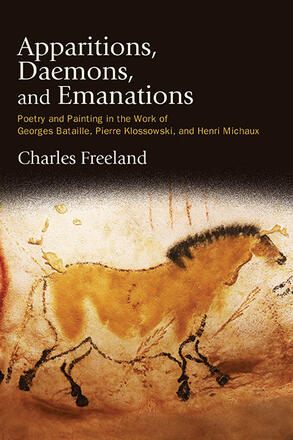
Apparitions, Daemons, and Emanations
Poetry and Painting in the Work of Georges Bataille, Pierre Klossowski, and Henri Michaux
Alternative formats available from:
A study of non-representational art and poetry in the work of Bataille, Klossowski, and Michaux.
Description
This book presents a new study of the visual arts and poetry in the work of three well-known French writers and artists from the mid-twentieth century—Georges Bataille, Pierre Klossowski, and Henri Michaux. Each was fiercely independent, belonging to no school, academy, or political persuasion. What do they have in common? While the book's three central essays do not initially set out to establish comparisons between these writers, common ground emerges: a shared combat against culture, a shared non-representational artistic practice. Their writing, poetry, and painting offer not a portrayal of things or ideas but rather an emanation or apparition of the unknown and the infinite, one charged with deepening art's relation to life.
Charles Freeland is Assistant Professor Emeritus, Senior Lecturer in Philosophy, Art History and Literature, Mahidol University International College, Thailand. He is the author of Antigone, in Her Unbearable Splendor: New Essays on Jacques Lacan's The Ethics of Psychoanalysis, also published by SUNY Press.
Reviews
"This is a stunning book: erudite and philosophically astute. Freeland takes us deep into the labyrinthine recesses of the 'unknown' explored by Bataille (prehistoric art), Klossowski (demonology), and Michaux (mescaline). Like each of these author's own work, Freeland's writing hovers at a limit where language strives to express what is not linguistic and thus inexpressible. An essential work, it deserves a wide audience." — Daniel W. Smith, coeditor of Deleuze and Time